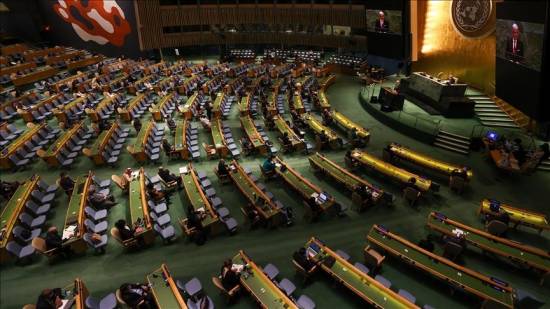The UN General Assembly reiterated its call that the US end its embargo on the island nation of Cuba on Wednesday, the latest in a long-standing series of annual votes insisting the Cold War-era measure be halted.
The vote saw 184 nations voting in favor in the 193 member chamber, with two opposed -- the United States and Israel. Three nations abstained from casting a vote.
Addressing the assembly ahead of the vote, Cuban Foreign Minister Bruno Eduardo Rodriguez Parrilla said the embargo compounded Havana's woes during the COVID-19 pandemic, requiring the Cuban government to pursue workarounds for badly-needed medicines and produced in the US that skyrocketed costs and led to uneven supply.
"They calculate that if they subject the Cuban people to hardship, and if they promote artificial leaders which incite disorder and instability they will be able to whip up a virtual political movement on social movement to later bring it into the real world," he said of the US.
"They are unleashing a renewed campaign, and a renewed spirit of ideological intolerance, and unleashing a newly brutal attack against those that are defending truth," he added.
Wednesday's vote marks the 29th time the assembly has called for the blockade to be ended, though that can only be done with an act of the US Congress.
While the embargo was loosened in 2000 to allow for food and humanitarian goods to be sent to Cuba it has largely remained intact. It prohibits most American business with Cuba, exposing US corporations to potential sanctions should they do business with the Cold War rival.
Rodney Hunter, the US mission's political coordinator, defended the embargo, saying that every year Washington authorizes billions of dollars of trade with Cuba that includes food, agricultural commodities, medicines, telecommunications equipment and other consumer goods.
He said the US opposes the resolution because sanctions "are one set of tools in our broader effort toward Cuba to advance democracy, promote respect for human rights, and help the Cuban people exercise the fundamental freedoms enshrined in the Universal Declaration of Human Rights."/aa


